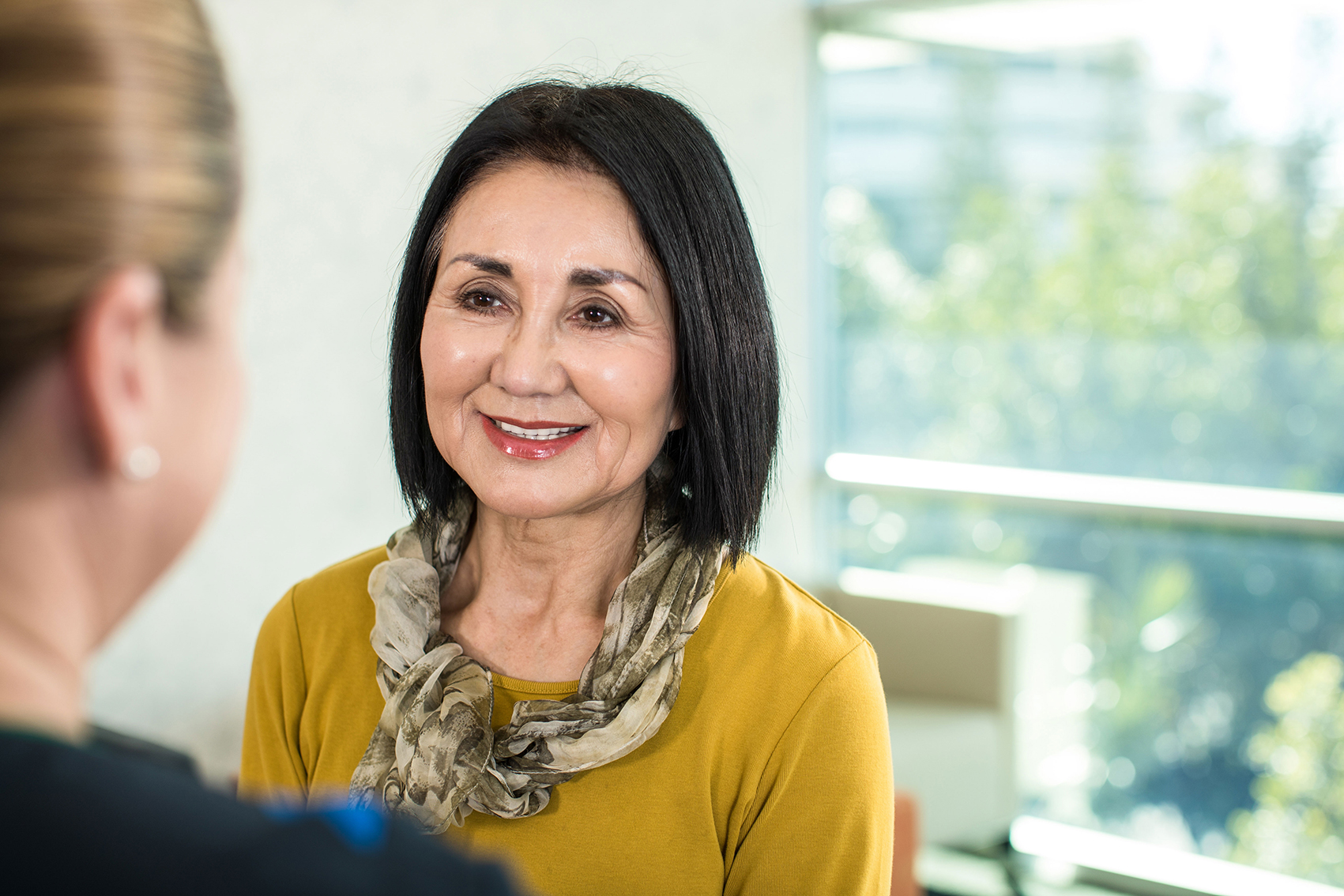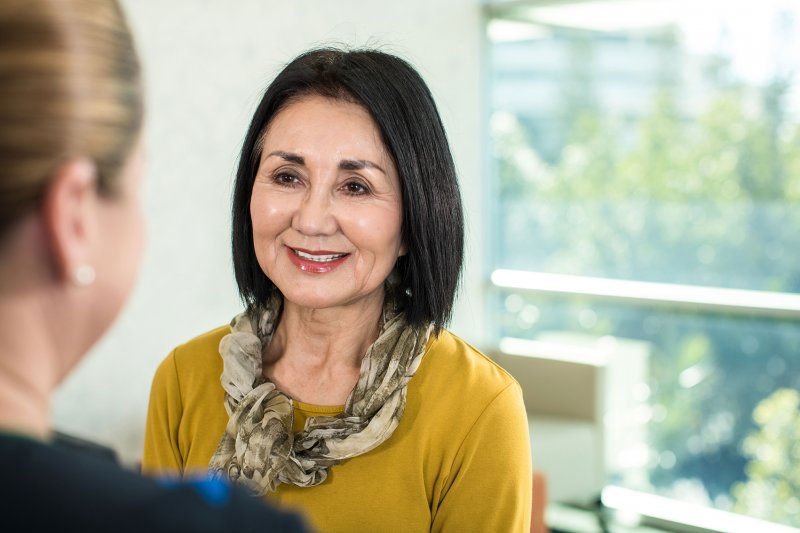Ovarian cancer involves abnormal cell growth within the ovary and surrounding tissues.


Ovarian Cancer
- Ovaries are part of the reproductive system and are responsible for the production of hormones such as oestrogen and progesterone
- A majority of Singaporean women who are diagnosed with ovarian cancer are aged between 40 and 60 years old
- Cases of ovarian cancer have doubled in the past 50 years, from 6 per 100,000 people in 1968-1972 to around 13 per 100,000 people in 2014-2018
- Ovarian cancer is the fifth most common cancer in Singaporean women
Ovarian cancer can be one of three types:
- Epithelial – which can involve either one or both ovaries, where cancer cells grow on the outside of the ovary. This type of ovarian cancer is the most common form, accounting for approximately 90% of ovarian cancers
- Germ cell – involves the cells that produce the eggs, and account for approximately 4% of all ovarian cancers
- Stromal tumour – involves the tissues that support the ovary in producing oestrogen and progesterone hormones. This type of ovarian cancer is very rare
As signs and symptoms for ovarian cancer can be similar to other common conditions, it’s important to see your GP or healthcare professional if you experience any of the symptoms below. Discussing anything concerning with your doctor as soon as possible can help give you peace of mind and offer the best chance of successful treatment if you receive an ovarian cancer diagnosis. Symptoms may include:
Common symptoms
|
|
|
Painin the abdomen or pelvic area |
More frequent or urgent needto pass urine |
|
|
|
Bloatingor an extended abdomen |
Reduced appetiteor a feeling of being full after small meals |
Less common symptoms
|
|
|
|
Changes in bowel habitssuch as constipation or diarrhoea |
Explained weight gain or loss |
Tiredness |
Ovarian cancer is typically staged using the FIGO (International Federation of Gynaecology and Obstetrics) system, which helps doctors understand what your cancer looks like.
Within each stage of ovarian cancer, there are sub-stages listed from A through to D which describe the extent of the tumour. The FIGO system, along with other tests, helps determine the stage of your ovarian cancer using the guidelines.
Some women are at an increased risk of ovarian cancer because they have a strong family history of ovarian cancer or breast cancer. They may also be at increased risk when a family member is known to have inherited a fault in a gene associated with breast or ovarian cancer.
In some cases, ovarian cancer is due to mutations in the genes BRCA 1 (Breast Cancer 1) and BRCA 2 (Breast Cancer 2). Mutations in these genes also increase your risk of developing breast cancer.
Approximately 15% of ovarian cancers are caused by these gene mutations.
There’s no one cause of ovarian cancer, however genetic, lifestyle and environmental factors can all increase your risk. Risk factors include:
- Having a family history of ovarian cancer, especially if a close relative such as your sister, mother or daughter has had ovarian cancer
- Increased age
- Cigarette smoking
- Obesity
- Having a family history of bowel or breast cancer
- Endometriosis (a condition where tissue that lines your uterus grows abnormally outside of the uterus)
- Using Hormone Replacement Therapy (HRT)
- Early onset of menstruation and late menopause
Cases of ovarian cancer have doubled in the past 50 years to around 13 cases per 100,000 people in 2014-2018. This has seen ovarian cancer become the fifth most common cancer in Singaporean women. While the disease can occur in women of any age, ovarian cancer is most commonly diagnosed in women aged between 40 and 60 years old.
If you are experiencing any of the symptoms above or are concerned about your risk of cancer, Icon offers health screening packages to identify health conditions at an early stage. For more information on our screening services or to book an appointment, visit the Icon Health Screening website. Please note that Icon offers screening packages only and further investigations may be needed.
Although the exact cause of ovarian cancer is not known, there are some factors that can reduce your risk of developing ovarian cancer. These include:
- Pregnancy, breastfeeding and taking birth control reduce the frequency of egg production (ovulation), which is thought to decrease the risk of developing cancer of the ovary
- Tubal ligation (cutting and tying the fallopian tubes) as well as hysterectomy (removal of the uterus) are also thought to reduce the risk of ovarian cancer, through the reduction of cancer-causes substances reaching the ovaries
- Maintaining a healthy weight
More research is needed to determine the risk of ovarian cancer on alcohol, diet and the use of aspirin and anti-inflammatory medications.
Icon offers screening programs to detect ovarian cancer early. For more information on our screening services or to book an appointment, visit the Icon Health Screening website.
Icon offers clinical trials across a wide range of cancer types and treatments. If you would like more information on participating in a clinical trial, please speak with your doctor who will be able to find a trial that might be right for you and your cancer.
See current clinical trials delivered by Icon Cancer Centre.
ReferencesReferences
-
- Health Promotion Board. (2018). Singapore Cancer Registry Annual Report 2018. Retrieved on 13 January 2022 from https://www.nrdo.gov.sg/docs/librariesprovider3/default-document-library/scr-annual-report-2018.pdf?sfvrsn=bcf56c25_0
- Singapore Cancer Society. (n.d.). Ovarian Cancer. Retrieved 13 January 2022 from https://www.singaporecancersociety.org.sg/learn-about-cancer/types-of-cancer/ovarian-cancer.html#treatment
- Ministry of Health Singapore. (2018). Ovarian Cancer. Retrieved 13 January 2022 from https://www.healthxchange.sg/cancer/ovarian-cancer/ovarian-cancer-treatment-prevention
- Cancer Council NSW (2021). Ovarian Cancer. Retrieved 12 October 2021 from https://www.cancercouncil.com.au/ovarian-cancer/
- Cancer Council. (2018). Ovarian Cancer. Retrieved on 28thMarch 2019 from https://www.cancer.org.au/about-cancer/types-of-cancer/ovarian-cancer.html#jump_5
- American Cancer Society. (2018). Ovarian Cancer Stages. Retrieved on 28thMarch 2019 from https://www.cancer.org/cancer/ovarian-cancer/detection-diagnosis-staging/staging.html
- Cancer Council. (2018). Staging and prognosis of ovarian cancer. Retrieved on 1stMay 2019 from https://www.cancercouncil.com.au/ovarian-cancer/diagnosis/staging-prognosis/
- Cancer Australia, Australian Government. (2019). What are the risk factors for ovarian cancer? Retrieved on 28thMarch 2019 from https://ovarian-cancer.canceraustralia.gov.au/risk-factors
- American Cancer Society. (2018). What Causes Ovarian Cancer? Retrieved on 28th March 2019 from https://www.cancer.org/cancer/types/ovarian-cancer/causes-risks-prevention/what-causes.html
Medical Concierge
Icon Cancer Centre Singapore support patients in the Asia Pacific region who are seeking to travel for their cancer treatment.
Care team
Every member of the Icon team is here to help. Here are some of the team members you may meet and how they will be involved in your treatment.
Our doctors
Our doctors deliver personalised, evidence-based care to support patients through their cancer treatment.






